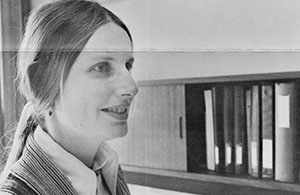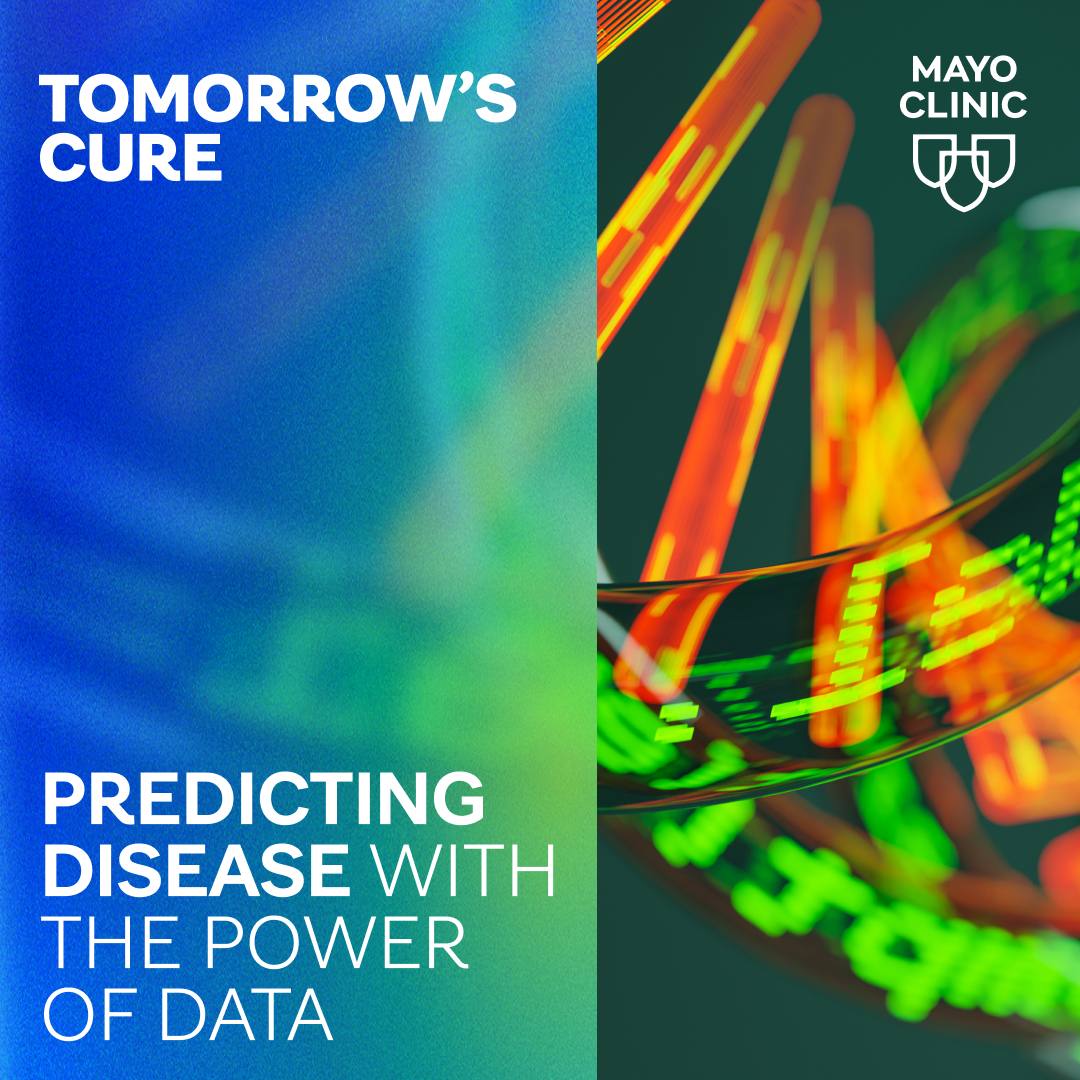-
#FlashbackFriday 1975: Optimistic or Pessimistic About Life in America?

This article first appeared in April 1975, in the publication Mayovox.
It was another gray day in Rochester and hope for an early spring had been dampened by yet another snow. News reports described deepening recession, rising unemployment, soaring prices, famine and starvation, scandals, war, the arms race, problems of pollution, overpopulation, crime, discrimination. On and on, the beat was negative. The press of life in late winter seemed almost overbearing.
Quite arbitrarily, we decided to write a clearly upbeat story for Mayovox and set out (writer and photographer) to sample the thinking of Mayo Clinic personnel on the subject of optimism. We singled out two dozen people one afternoon and spontaneously probed each on his or her mental set for the day.
These people had no warning and some refused to talk. Many of those who braved our tape recorder and camera answered predictably; but by the end of the afternoon we found that contrived as the situation was, there were several believable and important themes coming through the extemporaneous remarks we were hearing.
Our question was simple and direct: “Are you optimistic or pessimistic about life in America these days?”
“A certain degree of optimism is needed to survive,” remarked Dr. Harold Markowitz of Clinical Chemistry.
Puffing on his pipe, Dr. Markowitz expanded laconically on how his generally positive philosophy roots from family history. “My father came from Russia. At the time of the czars, human life was worth nothing. If you want to feel optimistic, read the recent Smithsonian publication about Count Dracula,” he said with just the hint of a grin. “We’re tremendously more civilized now.”
Statistician Duane Ilstrup noted his confidence in the future relates to his belief in the durability of Americans. “Nothing has ever happened which we haven’t overcome,” he said. “The United States still has the potential to provide a good life.” Dr. Peter Chevalier, a research fellow in physiology, agreed: “I’m optimistic because I have faith in this country and in the people themselves who have made it great.”
Although Rochester and its environs often are viewed as classic Americana — the soil is rich, the atmosphere is clean, the streets are safe — Mayo Clinic people do not take their good fortune for granted. Many of those interviewed expressed a credible sense of gratitude for the security of a position at Mayo. One example: “As long as I have a job here I feel optimistic and secure,” said Mrs. Marian Schreiber, receptionist in the Medical Sciences Building lobby.
Mr. A. Russell Hanson of the Division of Education, who views himself as a “perpetual optimist,” predicts Mayo people have “exciting times ahead. Mayo staff — consultants, residents, paramedics and administrators — have unselfish attitudes about serving people,” he observed. “With these attitudes and with advances in education, research and patient care, we can’t be pessimistic. We may have to tighten our belts because of the economic situation, but hearty Minnesotans who can cope with Minnesota winters don’t get turned off by a few problems.”
Another Staff member expressing optimism was Dr. Charles Kennedy, a consultant in the Division of Community Medicine and Internal Medicine. Among Dr. Kennedy’s comments was an oft-repeated response: “As a product of the Depression I was raised within the ethic that things will get better if you work harder.”
Optimistic people at Mayo seem to care very much about their work and feel that something good will happen as a result of their personal effort. Dr. Christine Mroz, a resident in surgery, said she is content because she likes what she is doing and “will always find satisfying work in medicine.” Mrs. Janice Offord, a statistician, and Mr. Fred Axmear, a bioengineer, believe that caring about past mistakes will strengthen the future. Both see their occupations as providing the tools. Mrs. Offord said “technology will solve problems.” Mr. Axmear said education is a means of accomplishing change. He believes people are so weary of grim scandals, in politics especially, that “we are finally willing to start changing things.”
Research technician Phyllis Birden is optimistic about progress on discrimination in our community. Said Miss Birden: “Rochester is the most liberal and fast moving place I’ve ever lived as far as discrimination goes. I’d probably not be optimistic if discrimination did occur. But I’ve lived here five years . . . long enough to find out anything.”
Ironically, the weather was a contributing factor to the optimism of administrator Tom Kokesh. An avid winter sportsman, “snow and sunshine” make him happy.
Although many of those interviewed expressed optimism some candidly expressed pessimistic attitudes toward life in America. Citing impressive trends and statistics — the consumer price index, the Dow Jones average, rising crime rates, the seeming inability of mankind to live in peace — their evidence and arguments were impressive.
But by the end of the afternoon it seemed clear that most of the people we interviewed are “bullish” on America and pleased with their work at Mayo. Significantly, the word “faith” often was used in response to our question.
Dr. Harvey Cox, professor of divinity at Harvard University, defines faith as “not trying to believe the incredible . . . not a canon of rites or a code of rules.
“Faith is what makes it possible for us, despite the 5:30 news, to have confidence that hunger and hatred are not our unavoidable fate, that the future is not a stacked deck of cards or a fixed game, that the present mess is not our destiny . . . that we can do something.”
On balance, Mayo people would agree.
Here are photographs of some of the Mayo staff whose comments were included in this story.

Mr. Ilstrup; Dr. Kennedy; Miss Birden

Dr. Mroz; Mr. Hanson; Mrs. Schreiber; Dr. Chevalier; Mr. Axmear

Mrs. Offord
Related Articles







